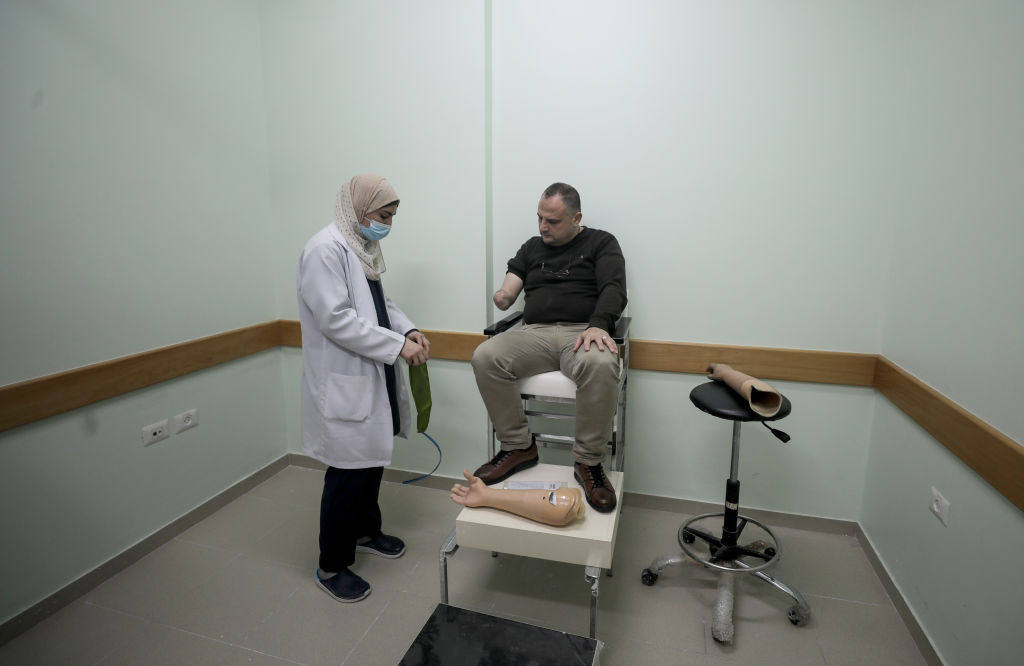The Gaza Strip is home to about 48,000 persons with disabilities affecting their daily lives.
The Gaza-based Sheikh Hamad Bin Khalifa Al-Thani Hospital for Rehabilitation and Prosthetics held a workshop to deliver electronic prosthetics to injured Palestinians in the besieged Strip.
The electronic hands are controlled by the brain, and mimic the work of natural limbs.
Sultan Al-Asiri, the Qatar Fund for Development’s representative, announced during a press conference that the new medical project had completed its first phase of installing electronic prosthetics for patients in Gaza.
The workshop will serve an estimated 40 Palestinians from the Gaza Strip, out of a total of 60 people who require limbs. The medical teams will begin working on 20 instances before moving on to the second phase, which will include another 20 cases following Eid Al-Fitr.
One of the patients is Mohammed Abed, who was targeted by an Israeli sniper whilst participating in the Great March of Return, resulting in him losing his hand.
“After I lost my hand, I felt that I was helpless and unable to continue my life,” the 29-year-old told The New Arab.
“I lost my carpentry work and became unemployed and dependent on my family of 10,” Abed added, stating that he had to wear a cosmetic prosthetic hand, which did not help him. “Today, I will be able to use my electronic prosthetic hand.”
Qatar’s FM, Hamas official discuss Israel’s targeted killings of Palestinian youth in Jenin
Al-Asiri said that such medical projects “give hope to Gaza’s amputee younger generation and children and will restore a level of normality to their lives and ease integration into society.”
Nour Aldin Salah, Director General of Sheikh Hamad bin Khalifa Al Thani Hospital in Gaza, said that the “rehabilitation and social integration of people with hearing and mobility impairments is a top priority for the hospital, which coordinates with international organisations to ensure continued access to these direct services for the people with disabilities.”







